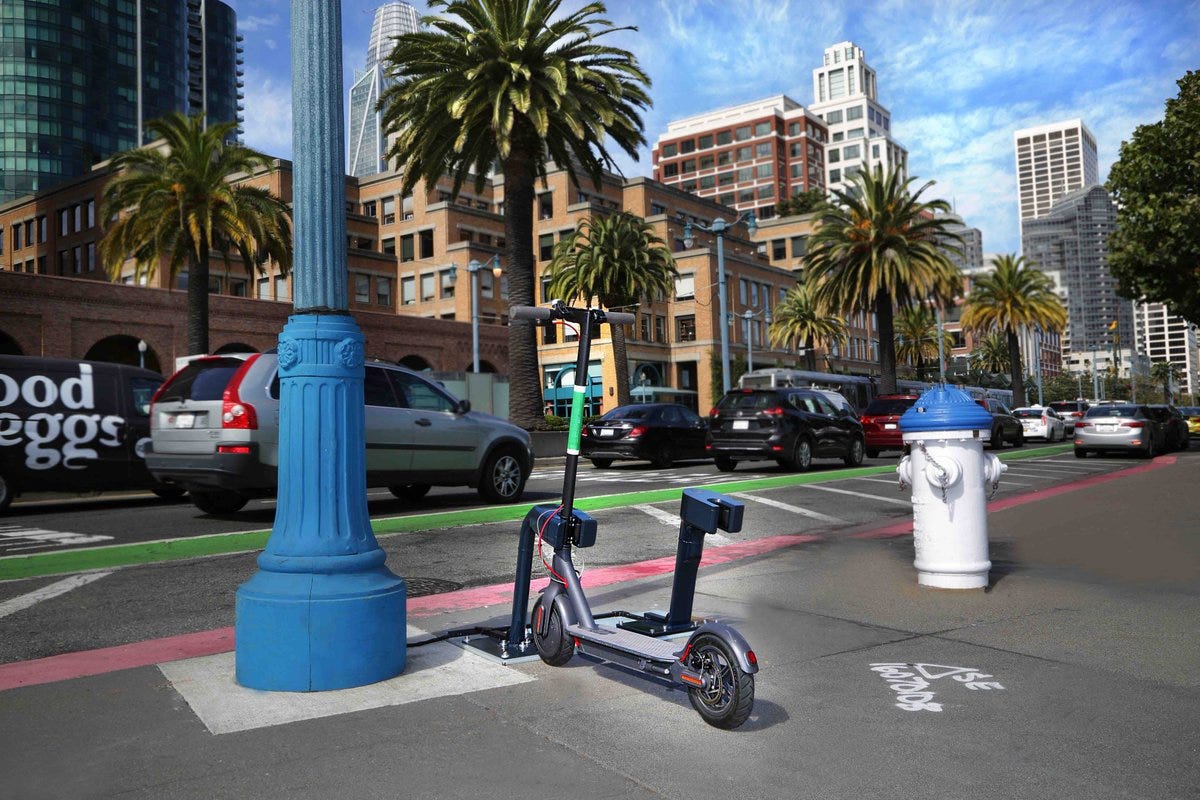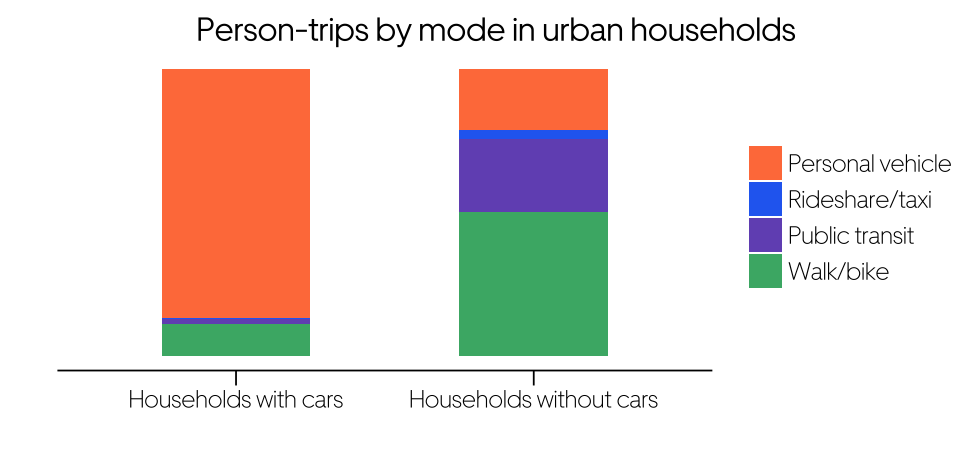Movements | October 8, 2018
Issue #18! brought to you by Michal Naka and Adam Feldman. If you’d like this newsletter delivered to your inbox every Monday, you can subscribe here.
Product Launches and Updates
Bird officially launched their new “BirdZero” scooter (aka ‘The Tank’) after a few months of testing in the wild. This scooter was designed in-house by Bird’s Vehicle Engineering team for the ‘sharing-first’ world. With a more ruggedized design and a 30-mile range, this scooter is able to stay out on the streets overnight to help Bird lower operations costs. Related: Our friend, the Rideshare Guy, reviews the new BirdZero. | Bird
Lime quietly launched a new scooter model last week. There’s not too many details right now, but it is following the ‘ruggedization” trend with a metal base plate, bigger wheels and better shock absorption. This is Lime’s 3rd major scooter model release in less than a year. | Twitter
Ctrip, China’s largest OTA, partners with Splyt to allow travelers to book rides on Gett, Careem, and Cabify from within the Ctrip app when abroad. | TravelDailyNews
Google Maps launches new commute features, including live traffic and transit information as well as real-time train and bus positions. | Engadget
SwiftMile introduced a charging and parking system for electric scooters and bikes. | SwiftMile

Micromobility
Bird continues international expansion with a launch in Mexico City. Since August 1st, the company has launched 75 new cities, 125 colleges, & 5 countries. Related: Lime launched on Sunday in Mexico City. | The Verge
The Information hosted a “Micromobility” call last week with executives from Scoot, Jump, and Skip. We’ve been told it was one of their most popular calls of the year! Here are some takeaways:
Companies are operating at sub-scale and still can’t meet user demand.
Biggest constraint: Cities making room for micromobility.
Focus on lowering operations cost with new charging models and hardware design.
Interoperability of new mobility services increases competition and benefits consumers. Albert Wenger is exactly right when he suggests that “Cities should get together and publish an interoperability standard that every bike and scooter sharing company needs to adhere to…This would mean that equipment providers would have to compete on the quality of their equipment (e.g. comfort, safety) instead of who has raised the most money to build the densest network themselves.” | Continuations
Uber launched its first scooters in Santa Monica. | Uber
TNCs
Grab is close to raising $500 million from Softbank. | Tech in Asia
Uber Eats launched a new feature where you can save a few dollars by sharing a courier with a nearby order. “Uber Eats Pool” anyone? | Twitter
Uber published some key takeaways from the National Household Travel Survey:
Private automobile usage still dominates — “if we consider only households in dense parts of large cities, private autos are still used for the vast majority (76%) of miles traveled by ground transportation. Transit use is far more prevalent, at 16%, but taxis and ridesharing still only account for about 1.7% of travel.”
Households without cars are significantly more multimodal — “Walking and biking account for about half of trips, 24% were on public transit, and a relatively small fraction were by ridesharing and taxi (2.9%).”
Deadheading, e.g. searching or parking or otherwise unproductive legs of trips, “add 100 billion vehicle miles per year to US roadways — or about 5% of total personal vehicle travel.”

Distribution of person-trips in four mode categories, for urban households with and without cars. (Uber)
Cities
Paris is banning cars one Sunday each month in an effort to improve air quality. The city has employed a bunch of policies to reduce car usage by 6% in the past year. | Independent
Madrid is set to approve a raft of traffic calming measures to improve life in the city center. | El Pais
Spin and JUMP join Lime in appealing San Francisco’s allocation of permits for scooters. | SF Chronicle
Kansas City adds a temporary scooter and bike lane downtown. | KSHB
A compelling case for Universal Basic Mobility: “As the cost drops, access to transport mobility will seem like a right, like internet and phone connectivity… Just like connectivity, mobility provides essential access to job opportunities, family, and serves basic needs like food, shelter, and medical care.” If you squint, you can see how today’s MaaS experiments like those from Whim and TNCs can enable this future. | CityLab
Investments
Toyota Group invests in mobilityX, a ‘Mobility-as-a-Service’ startup owned by Singapore’s transport operator SMRT. The product allows transport operators to run their own multi-modal versions of transportation network apps like Grab or Uber. | Yahoo
Toyota Group and SoftBank create a JV to focus on mobility services. | CNBC
Honda invests $2.75B in GM’s cruise. | WSJ
